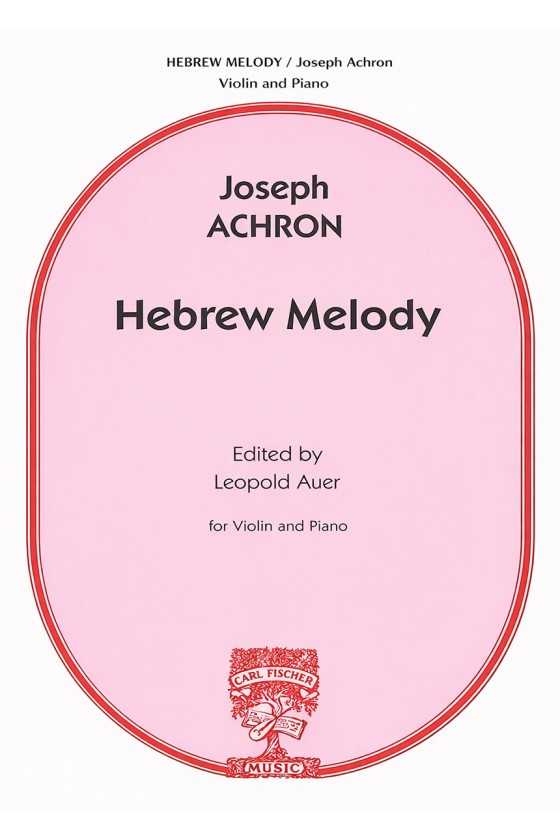Achron Hebrew Melody For Violin (Fischer)
Achron Hebrew Melody for Violin by Joseph Achron, published by Carl Fischer Music, is a deeply expressive solo violin work cherished for its haunting beauty and emotional honesty.
Key features
• Lyrical and intensely expressive
• Rooted in Jewish musical tradition
• Focuses on tone, color, and phrasing
• A powerful short piece with lasting impact


